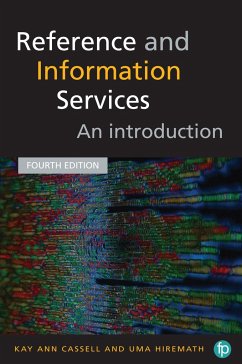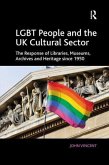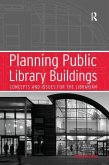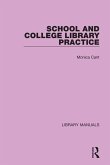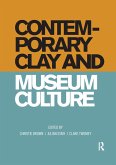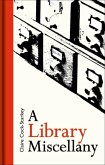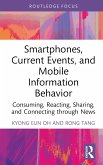- Broschiertes Buch
- Merkliste
- Auf die Merkliste
- Bewerten Bewerten
- Teilen
- Produkt teilen
- Produkterinnerung
- Produkterinnerung
This fully updated edition of the landmark textbook by Cassell and Hiremath is designed to complement every introductory library reference course and is the perfect text for students and librarians looking to expand their personal reference knowledge.
Andere Kunden interessierten sich auch für
![LGBT People and the UK Cultural Sector LGBT People and the UK Cultural Sector]() John VincentLGBT People and the UK Cultural Sector72,99 €
John VincentLGBT People and the UK Cultural Sector72,99 €![Planning Public Library Buildings Planning Public Library Buildings]() Michael DewePlanning Public Library Buildings80,99 €
Michael DewePlanning Public Library Buildings80,99 €![School and College Library Practice School and College Library Practice]() Monica CantSchool and College Library Practice50,99 €
Monica CantSchool and College Library Practice50,99 €![Cataloging and Classification Cataloging and Classification]() Cataloging and Classification42,99 €
Cataloging and Classification42,99 €![Contemporary Clay and Museum Culture Contemporary Clay and Museum Culture]() Contemporary Clay and Museum Culture67,99 €
Contemporary Clay and Museum Culture67,99 €![A Library Miscellany A Library Miscellany]() Claire Cock-StarkeyA Library Miscellany17,99 €
Claire Cock-StarkeyA Library Miscellany17,99 €![Smartphones, Current Events and Mobile Information Behavior Smartphones, Current Events and Mobile Information Behavior]() Kyong Eun OhSmartphones, Current Events and Mobile Information Behavior74,99 €
Kyong Eun OhSmartphones, Current Events and Mobile Information Behavior74,99 €-
-
This fully updated edition of the landmark textbook by Cassell and Hiremath is designed to complement every introductory library reference course and is the perfect text for students and librarians looking to expand their personal reference knowledge.
Produktdetails
- Produktdetails
- Verlag: Facet Publishing
- 4 ed
- Seitenzahl: 480
- Erscheinungstermin: 28. Mai 2018
- Englisch
- Abmessung: 254mm x 178mm x 26mm
- Gewicht: 950g
- ISBN-13: 9781783302338
- ISBN-10: 178330233X
- Artikelnr.: 52911884
- Herstellerkennzeichnung Die Herstellerinformationen sind derzeit nicht verfügbar.
- Verlag: Facet Publishing
- 4 ed
- Seitenzahl: 480
- Erscheinungstermin: 28. Mai 2018
- Englisch
- Abmessung: 254mm x 178mm x 26mm
- Gewicht: 950g
- ISBN-13: 9781783302338
- ISBN-10: 178330233X
- Artikelnr.: 52911884
- Herstellerkennzeichnung Die Herstellerinformationen sind derzeit nicht verfügbar.
Kay Ann Cassell received her BA from Carnegie Mellon University, her MLS from Rutgers University, and her PhD from the International University for Graduate Studies. She has worked in academic libraries and public libraries as a reference librarian and as a library director. Ms. Cassell is a past president of Reference and User Services Association of ALA and is active on ALA and RUSA committees. She is the editor of the journal Collection Building and is the author of numerous articles and books on collection development and reference service. She was formerly the Associate Director of Collections and Services for the Branch Libraries of the New York Public Library where she was in charge of collection development and age-level services for the Branch Libraries. She is now a Lecturer and Director of the MLIS Program in the School of Communication, Information and Library Studies at Rutgers, the State University of New Jersey. Uma Hiremath is Executive Director at the Ames Free Library, Massachusetts. She was Assistant Director at the Thayer Public Library, Massachusetts; Head of Reference at the West Orange Public Library, New Jersey; and Supervising Librarian at the New York Public Library where she worked for five years. She received her MLS from Pratt Institute, New York, and her PhD in political science at the University of Pittsburgh.
PART 1: FUNDAMENTAL CONCEPTS
1. Introduction to Reference and Information Services
* Ethics
* Kinds of information service
* Selecting and evaluating print and electronic resources
* Creating and finding tools and websites
* Promotion and marketing
* Evaluating staff and services
* The changing nature of reference
* Recommendations for further reading
* Bibliography and works cited
2. Determining the Question: In-Person, Telephone, and Virtual Reference
Interviews
* Why do the reference review?
* What we know about the reference interview
* Conducting the reference interview
* Problematic strategies in the reference interview
* The telephone interview
* Answering questions virtually
* RUSA guidelines - an integrated approach
* Cultural differences
* Improving our skills
* A look ahead
* Recommendations for further reading
* Bibliography and works cited
3. Finding the Answer: Basic Search Techniques
* Tools of the answering trade
* Types of answers
* Common pitfalls in reference answering
* Raison d'etre: finding the answers
* Recommendations for further reading
* Bibliography and works cited
PART 2: INTRODUCTION TO MAJOR REFERENCE SOURCES
4. Answering Questions about Books, Magazines, Newspapers, Libraries and
Publishing, and Bibliographic Networks: Bibliographic Resources
* Overview
* Major bibliographic resources used in reference work
* Collection development and maintenance
* Further consideration
* Recommended resources discussed in this chapter
* Recommendations for further reading
* Bibliography and works cited
5. Answering Questions about Anything and Everything: Encyclopedias
* Overview
* Major encyclopaedic resources used in reference work
* Collection development and maintenance
* Further consideration
* Recommended resources discussed in this chapter
* Recommendations for further reading
* Bibliography and works cited
6. Answering Questions That Require Handy Facts: Ready Reference Sources
* Overview
* Major ready reference resources used in reference work
* Collection development and maintenance
* Further consideration
* Recommended resources discussed in this chapter
* Recommendations for further reading
* Bibliography and works cited
7. Answering Questions about Words: Dictionaries, Concordances, and Manuals
* Overview
* Major dictionaries used in reference work
* Collection development and maintenance
* Further consideration
* Final thoughts
* Recommended resources discussed in this chapter
* Recommendations for further reading
* Bibliography and works cited
8. Answering Questions about Events and Issues, Past and Present: Databases
(and Indexes)
* Overview
* Major databases used in reference work
* Collection development and maintenance
* Further consideration
* Final thoughts
* Recommended resources discussed in this chapter
* Recommendations for further reading
* Bibliography and works cited
9. Answering Questions about Health, Law, and Business: Special Guidelines
and Sources
* Overview
* Major health resources used in reference work
* Major legal resources used in reference work
* Major business resources used in reference work
* Collection development and maintenance
* Further consideration
* Recommended resources discussed in this chapter
* Recommendations for further reading
* Bibliography and works cited
10. Answering Questions about Geography, Countries, and Travel: Atlases,
Gazetteers, Maps, Geographic Information Systems, and Travel Guides
* Overview
* Major geographic information resources resources used in reference
work
* Collection development and maintenance
* Further consideration
* Recommended resources discussed in this chapter
* Recommendations for further reading
* Bibliography and works cited
11. Answering Questions about the Lives of People: Biographical Information
Sources
* Overview
* Major biographical resources resources used in reference work
* Collection development and maintenance
* Further consideration
* Recommended resources discussed in this chapter
* Recommendations for further reading
* Bibliography and works cited
12. Answering Questions about Government and Related Issues: Government
Information Sources
* Overview
* Major government publication resources resources used in reference
work
* Collection development and maintenance
* Further consideration
* Recommended resources discussed in this chapter
* Recommendations for further reading
* Bibliography and works cited
PART 3: SPECIAL TOPICS IN REFERENCE AND INFORMATION WORK
13. When and How to Use the Internet as a Reference Tool
* The facts
* The puzzle
* The solution
* Nature of internet reference
* Recommendations for further reading
* Bibliography and works cited
14. Readers' Advisory Services - Cindy Orr
* Introduction
* History of Reader's Advisory Service
* Current status and importance of RA
* Nuts and bolts - the Readers' Advisory interview
* Common mistakes and best practices
* Key works and tolls for Readers' Advisory
* Indirect RA
* Keeping current
* Conclusion
* Recommendations for further reading
* Bibliography and works cited
15. Reference Sources and Services for Children and Young Adults - Meghan
Harper
* Introduction
* History and overview of reference services for youth in America
* Types of reference service transactions for youth in libraries
* Communication in reference service
* Digital reference service
* Evaluating reference services to youth
* Managing reference services for youth
* The future of reference services for youth
* Recommended core reference collection resources
* Bibliography and works cited
16. Information Literacy in the Reference Department
* Standards for information literacy
* Approaches to information literacy
* Information literacy by type of library
* Social and ethical uses of information
* One-on-one instruction
* Information literacy in a classroom setting
* Impact of new technology on the teaching of information literacy
* Assessment and evaluation of information literacy
* Information-seeking behaviour
* Further consideration
* Recommendations for further reading
* Bibliography and works cited
PART 4: DEVELOPING AND MANAGING REFERENCE COLLECTIONS AND SERVICES
17. Selecting and Evaluating Reference Materials
* Identifying, selecting and evaluating new reference materials
* Management of the reference budget
* Ongoing assessment of reference collection
* Weeding the reference collection
* Writing a reference collection development policy
* Promoting and marketing reference materials to library users
* Recommendations for further reading
* Bibliography and works cited
18. Ethics in Reference - Angela Ecklund
* Our professional codes of ethics
* Service ethics (aka doing a good job0
* Equitable access to information
* Confidentiality
* Conflicts of interest
* Copyright and intellectual property rights
* Intellectual freedom and human rights
* Bibliography and works cited
19. Managing Reference Departments
* Of car designs and learning styles
* Organizing reference departments
* Organizing staff
* Managing service delivery
* New roles
* Further consideration
* Recommendations for further reading
* Bibliography and works cited
20. Assessing and Improving Reference Services
* Why assess
* What to assess
* How to assess
* Acting on assessments
* Ongoing assessments: an imperative
* Recommendations for further reading
* Bibliography and works cited
21. Reference 2.0
* Changing vocabulary attests to changing times
* What is the 2.0 Universe?
* Cooperative content creation
* Social networking
* Customization
* Seamlessness
* Concluding remarks: The Tree of 2.0 Knowledge
* Recommendations for further reading
* Bibliography and works cited
22. The Future of Information Service
* New ways of doing business - Reference 2.0
* Providing new materials and formats
* Providing new service models
* What will librarians do? Competencies needed
* Planning the future
* What will the future of reference look like?
* Does reference have a future
* Recommendations for further reading
* Bibliography and works cited
PART 1: FUNDAMENTAL CONCEPTS 1. Introduction to Reference and Information
Services 2. Determining the Question: In-Person, Telephone, and Virtual
Reference Interviews 3. Finding the Answer: Basic Search Techniques. PART
2: INTRODUCTION TO MAJOR REFERENCE SOURCES 4. Answering Questions about
Books, Magazines, Newspapers, Libraries and Publishing, and Bibliographic
Networks: Bibliographic Resources 5. Answering Questions about Anything and
Everything: Encyclopedias 6. Answering Questions That Require Handy Facts:
Ready Reference Sources 7. Answering Questions about Words: Dictionaries,
Concordances, and Manuals 8. Answering Questions about Events and Issues,
Past and Present: Databases (and Indexes) 9. Answering Questions about
Health, Law, and Business: Special Guidelines and Sources 10. Answering
Questions about Geography, Countries, and Travel: Atlases, Gazetteers,
Maps, Geographic Information Systems, and Travel Guides 11. Answering
Questions about the Lives of People: Biographical Information Sources 12.
Answering Questions about Government and Related Issues: Government
Information Sources PART 3: SPECIAL TOPICS IN REFERENCE AND INFORMATION
WORK 13. When and How to Use the Internet as a Reference Tool 14. Readers'
Advisory Services - Cindy Orr 15. Reference Sources and Services for
Children and Young Adults - Meghan Harper 16. Information Literacy in the
Reference Department PART 4: DEVELOPING AND MANAGING REFERENCE COLLECTIONS
AND SERVICES 17. Selecting and Evaluating Reference Materials 18. Ethics in
Reference - Angela Ecklund 19. Managing Reference Departments 20. Assessing
and Improving Reference Services 21. Reference 2.0 22. The Future of
Information Service.
1. Introduction to Reference and Information Services
* Ethics
* Kinds of information service
* Selecting and evaluating print and electronic resources
* Creating and finding tools and websites
* Promotion and marketing
* Evaluating staff and services
* The changing nature of reference
* Recommendations for further reading
* Bibliography and works cited
2. Determining the Question: In-Person, Telephone, and Virtual Reference
Interviews
* Why do the reference review?
* What we know about the reference interview
* Conducting the reference interview
* Problematic strategies in the reference interview
* The telephone interview
* Answering questions virtually
* RUSA guidelines - an integrated approach
* Cultural differences
* Improving our skills
* A look ahead
* Recommendations for further reading
* Bibliography and works cited
3. Finding the Answer: Basic Search Techniques
* Tools of the answering trade
* Types of answers
* Common pitfalls in reference answering
* Raison d'etre: finding the answers
* Recommendations for further reading
* Bibliography and works cited
PART 2: INTRODUCTION TO MAJOR REFERENCE SOURCES
4. Answering Questions about Books, Magazines, Newspapers, Libraries and
Publishing, and Bibliographic Networks: Bibliographic Resources
* Overview
* Major bibliographic resources used in reference work
* Collection development and maintenance
* Further consideration
* Recommended resources discussed in this chapter
* Recommendations for further reading
* Bibliography and works cited
5. Answering Questions about Anything and Everything: Encyclopedias
* Overview
* Major encyclopaedic resources used in reference work
* Collection development and maintenance
* Further consideration
* Recommended resources discussed in this chapter
* Recommendations for further reading
* Bibliography and works cited
6. Answering Questions That Require Handy Facts: Ready Reference Sources
* Overview
* Major ready reference resources used in reference work
* Collection development and maintenance
* Further consideration
* Recommended resources discussed in this chapter
* Recommendations for further reading
* Bibliography and works cited
7. Answering Questions about Words: Dictionaries, Concordances, and Manuals
* Overview
* Major dictionaries used in reference work
* Collection development and maintenance
* Further consideration
* Final thoughts
* Recommended resources discussed in this chapter
* Recommendations for further reading
* Bibliography and works cited
8. Answering Questions about Events and Issues, Past and Present: Databases
(and Indexes)
* Overview
* Major databases used in reference work
* Collection development and maintenance
* Further consideration
* Final thoughts
* Recommended resources discussed in this chapter
* Recommendations for further reading
* Bibliography and works cited
9. Answering Questions about Health, Law, and Business: Special Guidelines
and Sources
* Overview
* Major health resources used in reference work
* Major legal resources used in reference work
* Major business resources used in reference work
* Collection development and maintenance
* Further consideration
* Recommended resources discussed in this chapter
* Recommendations for further reading
* Bibliography and works cited
10. Answering Questions about Geography, Countries, and Travel: Atlases,
Gazetteers, Maps, Geographic Information Systems, and Travel Guides
* Overview
* Major geographic information resources resources used in reference
work
* Collection development and maintenance
* Further consideration
* Recommended resources discussed in this chapter
* Recommendations for further reading
* Bibliography and works cited
11. Answering Questions about the Lives of People: Biographical Information
Sources
* Overview
* Major biographical resources resources used in reference work
* Collection development and maintenance
* Further consideration
* Recommended resources discussed in this chapter
* Recommendations for further reading
* Bibliography and works cited
12. Answering Questions about Government and Related Issues: Government
Information Sources
* Overview
* Major government publication resources resources used in reference
work
* Collection development and maintenance
* Further consideration
* Recommended resources discussed in this chapter
* Recommendations for further reading
* Bibliography and works cited
PART 3: SPECIAL TOPICS IN REFERENCE AND INFORMATION WORK
13. When and How to Use the Internet as a Reference Tool
* The facts
* The puzzle
* The solution
* Nature of internet reference
* Recommendations for further reading
* Bibliography and works cited
14. Readers' Advisory Services - Cindy Orr
* Introduction
* History of Reader's Advisory Service
* Current status and importance of RA
* Nuts and bolts - the Readers' Advisory interview
* Common mistakes and best practices
* Key works and tolls for Readers' Advisory
* Indirect RA
* Keeping current
* Conclusion
* Recommendations for further reading
* Bibliography and works cited
15. Reference Sources and Services for Children and Young Adults - Meghan
Harper
* Introduction
* History and overview of reference services for youth in America
* Types of reference service transactions for youth in libraries
* Communication in reference service
* Digital reference service
* Evaluating reference services to youth
* Managing reference services for youth
* The future of reference services for youth
* Recommended core reference collection resources
* Bibliography and works cited
16. Information Literacy in the Reference Department
* Standards for information literacy
* Approaches to information literacy
* Information literacy by type of library
* Social and ethical uses of information
* One-on-one instruction
* Information literacy in a classroom setting
* Impact of new technology on the teaching of information literacy
* Assessment and evaluation of information literacy
* Information-seeking behaviour
* Further consideration
* Recommendations for further reading
* Bibliography and works cited
PART 4: DEVELOPING AND MANAGING REFERENCE COLLECTIONS AND SERVICES
17. Selecting and Evaluating Reference Materials
* Identifying, selecting and evaluating new reference materials
* Management of the reference budget
* Ongoing assessment of reference collection
* Weeding the reference collection
* Writing a reference collection development policy
* Promoting and marketing reference materials to library users
* Recommendations for further reading
* Bibliography and works cited
18. Ethics in Reference - Angela Ecklund
* Our professional codes of ethics
* Service ethics (aka doing a good job0
* Equitable access to information
* Confidentiality
* Conflicts of interest
* Copyright and intellectual property rights
* Intellectual freedom and human rights
* Bibliography and works cited
19. Managing Reference Departments
* Of car designs and learning styles
* Organizing reference departments
* Organizing staff
* Managing service delivery
* New roles
* Further consideration
* Recommendations for further reading
* Bibliography and works cited
20. Assessing and Improving Reference Services
* Why assess
* What to assess
* How to assess
* Acting on assessments
* Ongoing assessments: an imperative
* Recommendations for further reading
* Bibliography and works cited
21. Reference 2.0
* Changing vocabulary attests to changing times
* What is the 2.0 Universe?
* Cooperative content creation
* Social networking
* Customization
* Seamlessness
* Concluding remarks: The Tree of 2.0 Knowledge
* Recommendations for further reading
* Bibliography and works cited
22. The Future of Information Service
* New ways of doing business - Reference 2.0
* Providing new materials and formats
* Providing new service models
* What will librarians do? Competencies needed
* Planning the future
* What will the future of reference look like?
* Does reference have a future
* Recommendations for further reading
* Bibliography and works cited
PART 1: FUNDAMENTAL CONCEPTS 1. Introduction to Reference and Information
Services 2. Determining the Question: In-Person, Telephone, and Virtual
Reference Interviews 3. Finding the Answer: Basic Search Techniques. PART
2: INTRODUCTION TO MAJOR REFERENCE SOURCES 4. Answering Questions about
Books, Magazines, Newspapers, Libraries and Publishing, and Bibliographic
Networks: Bibliographic Resources 5. Answering Questions about Anything and
Everything: Encyclopedias 6. Answering Questions That Require Handy Facts:
Ready Reference Sources 7. Answering Questions about Words: Dictionaries,
Concordances, and Manuals 8. Answering Questions about Events and Issues,
Past and Present: Databases (and Indexes) 9. Answering Questions about
Health, Law, and Business: Special Guidelines and Sources 10. Answering
Questions about Geography, Countries, and Travel: Atlases, Gazetteers,
Maps, Geographic Information Systems, and Travel Guides 11. Answering
Questions about the Lives of People: Biographical Information Sources 12.
Answering Questions about Government and Related Issues: Government
Information Sources PART 3: SPECIAL TOPICS IN REFERENCE AND INFORMATION
WORK 13. When and How to Use the Internet as a Reference Tool 14. Readers'
Advisory Services - Cindy Orr 15. Reference Sources and Services for
Children and Young Adults - Meghan Harper 16. Information Literacy in the
Reference Department PART 4: DEVELOPING AND MANAGING REFERENCE COLLECTIONS
AND SERVICES 17. Selecting and Evaluating Reference Materials 18. Ethics in
Reference - Angela Ecklund 19. Managing Reference Departments 20. Assessing
and Improving Reference Services 21. Reference 2.0 22. The Future of
Information Service.
PART 1: FUNDAMENTAL CONCEPTS
1. Introduction to Reference and Information Services
* Ethics
* Kinds of information service
* Selecting and evaluating print and electronic resources
* Creating and finding tools and websites
* Promotion and marketing
* Evaluating staff and services
* The changing nature of reference
* Recommendations for further reading
* Bibliography and works cited
2. Determining the Question: In-Person, Telephone, and Virtual Reference
Interviews
* Why do the reference review?
* What we know about the reference interview
* Conducting the reference interview
* Problematic strategies in the reference interview
* The telephone interview
* Answering questions virtually
* RUSA guidelines - an integrated approach
* Cultural differences
* Improving our skills
* A look ahead
* Recommendations for further reading
* Bibliography and works cited
3. Finding the Answer: Basic Search Techniques
* Tools of the answering trade
* Types of answers
* Common pitfalls in reference answering
* Raison d'etre: finding the answers
* Recommendations for further reading
* Bibliography and works cited
PART 2: INTRODUCTION TO MAJOR REFERENCE SOURCES
4. Answering Questions about Books, Magazines, Newspapers, Libraries and
Publishing, and Bibliographic Networks: Bibliographic Resources
* Overview
* Major bibliographic resources used in reference work
* Collection development and maintenance
* Further consideration
* Recommended resources discussed in this chapter
* Recommendations for further reading
* Bibliography and works cited
5. Answering Questions about Anything and Everything: Encyclopedias
* Overview
* Major encyclopaedic resources used in reference work
* Collection development and maintenance
* Further consideration
* Recommended resources discussed in this chapter
* Recommendations for further reading
* Bibliography and works cited
6. Answering Questions That Require Handy Facts: Ready Reference Sources
* Overview
* Major ready reference resources used in reference work
* Collection development and maintenance
* Further consideration
* Recommended resources discussed in this chapter
* Recommendations for further reading
* Bibliography and works cited
7. Answering Questions about Words: Dictionaries, Concordances, and Manuals
* Overview
* Major dictionaries used in reference work
* Collection development and maintenance
* Further consideration
* Final thoughts
* Recommended resources discussed in this chapter
* Recommendations for further reading
* Bibliography and works cited
8. Answering Questions about Events and Issues, Past and Present: Databases
(and Indexes)
* Overview
* Major databases used in reference work
* Collection development and maintenance
* Further consideration
* Final thoughts
* Recommended resources discussed in this chapter
* Recommendations for further reading
* Bibliography and works cited
9. Answering Questions about Health, Law, and Business: Special Guidelines
and Sources
* Overview
* Major health resources used in reference work
* Major legal resources used in reference work
* Major business resources used in reference work
* Collection development and maintenance
* Further consideration
* Recommended resources discussed in this chapter
* Recommendations for further reading
* Bibliography and works cited
10. Answering Questions about Geography, Countries, and Travel: Atlases,
Gazetteers, Maps, Geographic Information Systems, and Travel Guides
* Overview
* Major geographic information resources resources used in reference
work
* Collection development and maintenance
* Further consideration
* Recommended resources discussed in this chapter
* Recommendations for further reading
* Bibliography and works cited
11. Answering Questions about the Lives of People: Biographical Information
Sources
* Overview
* Major biographical resources resources used in reference work
* Collection development and maintenance
* Further consideration
* Recommended resources discussed in this chapter
* Recommendations for further reading
* Bibliography and works cited
12. Answering Questions about Government and Related Issues: Government
Information Sources
* Overview
* Major government publication resources resources used in reference
work
* Collection development and maintenance
* Further consideration
* Recommended resources discussed in this chapter
* Recommendations for further reading
* Bibliography and works cited
PART 3: SPECIAL TOPICS IN REFERENCE AND INFORMATION WORK
13. When and How to Use the Internet as a Reference Tool
* The facts
* The puzzle
* The solution
* Nature of internet reference
* Recommendations for further reading
* Bibliography and works cited
14. Readers' Advisory Services - Cindy Orr
* Introduction
* History of Reader's Advisory Service
* Current status and importance of RA
* Nuts and bolts - the Readers' Advisory interview
* Common mistakes and best practices
* Key works and tolls for Readers' Advisory
* Indirect RA
* Keeping current
* Conclusion
* Recommendations for further reading
* Bibliography and works cited
15. Reference Sources and Services for Children and Young Adults - Meghan
Harper
* Introduction
* History and overview of reference services for youth in America
* Types of reference service transactions for youth in libraries
* Communication in reference service
* Digital reference service
* Evaluating reference services to youth
* Managing reference services for youth
* The future of reference services for youth
* Recommended core reference collection resources
* Bibliography and works cited
16. Information Literacy in the Reference Department
* Standards for information literacy
* Approaches to information literacy
* Information literacy by type of library
* Social and ethical uses of information
* One-on-one instruction
* Information literacy in a classroom setting
* Impact of new technology on the teaching of information literacy
* Assessment and evaluation of information literacy
* Information-seeking behaviour
* Further consideration
* Recommendations for further reading
* Bibliography and works cited
PART 4: DEVELOPING AND MANAGING REFERENCE COLLECTIONS AND SERVICES
17. Selecting and Evaluating Reference Materials
* Identifying, selecting and evaluating new reference materials
* Management of the reference budget
* Ongoing assessment of reference collection
* Weeding the reference collection
* Writing a reference collection development policy
* Promoting and marketing reference materials to library users
* Recommendations for further reading
* Bibliography and works cited
18. Ethics in Reference - Angela Ecklund
* Our professional codes of ethics
* Service ethics (aka doing a good job0
* Equitable access to information
* Confidentiality
* Conflicts of interest
* Copyright and intellectual property rights
* Intellectual freedom and human rights
* Bibliography and works cited
19. Managing Reference Departments
* Of car designs and learning styles
* Organizing reference departments
* Organizing staff
* Managing service delivery
* New roles
* Further consideration
* Recommendations for further reading
* Bibliography and works cited
20. Assessing and Improving Reference Services
* Why assess
* What to assess
* How to assess
* Acting on assessments
* Ongoing assessments: an imperative
* Recommendations for further reading
* Bibliography and works cited
21. Reference 2.0
* Changing vocabulary attests to changing times
* What is the 2.0 Universe?
* Cooperative content creation
* Social networking
* Customization
* Seamlessness
* Concluding remarks: The Tree of 2.0 Knowledge
* Recommendations for further reading
* Bibliography and works cited
22. The Future of Information Service
* New ways of doing business - Reference 2.0
* Providing new materials and formats
* Providing new service models
* What will librarians do? Competencies needed
* Planning the future
* What will the future of reference look like?
* Does reference have a future
* Recommendations for further reading
* Bibliography and works cited
PART 1: FUNDAMENTAL CONCEPTS 1. Introduction to Reference and Information
Services 2. Determining the Question: In-Person, Telephone, and Virtual
Reference Interviews 3. Finding the Answer: Basic Search Techniques. PART
2: INTRODUCTION TO MAJOR REFERENCE SOURCES 4. Answering Questions about
Books, Magazines, Newspapers, Libraries and Publishing, and Bibliographic
Networks: Bibliographic Resources 5. Answering Questions about Anything and
Everything: Encyclopedias 6. Answering Questions That Require Handy Facts:
Ready Reference Sources 7. Answering Questions about Words: Dictionaries,
Concordances, and Manuals 8. Answering Questions about Events and Issues,
Past and Present: Databases (and Indexes) 9. Answering Questions about
Health, Law, and Business: Special Guidelines and Sources 10. Answering
Questions about Geography, Countries, and Travel: Atlases, Gazetteers,
Maps, Geographic Information Systems, and Travel Guides 11. Answering
Questions about the Lives of People: Biographical Information Sources 12.
Answering Questions about Government and Related Issues: Government
Information Sources PART 3: SPECIAL TOPICS IN REFERENCE AND INFORMATION
WORK 13. When and How to Use the Internet as a Reference Tool 14. Readers'
Advisory Services - Cindy Orr 15. Reference Sources and Services for
Children and Young Adults - Meghan Harper 16. Information Literacy in the
Reference Department PART 4: DEVELOPING AND MANAGING REFERENCE COLLECTIONS
AND SERVICES 17. Selecting and Evaluating Reference Materials 18. Ethics in
Reference - Angela Ecklund 19. Managing Reference Departments 20. Assessing
and Improving Reference Services 21. Reference 2.0 22. The Future of
Information Service.
1. Introduction to Reference and Information Services
* Ethics
* Kinds of information service
* Selecting and evaluating print and electronic resources
* Creating and finding tools and websites
* Promotion and marketing
* Evaluating staff and services
* The changing nature of reference
* Recommendations for further reading
* Bibliography and works cited
2. Determining the Question: In-Person, Telephone, and Virtual Reference
Interviews
* Why do the reference review?
* What we know about the reference interview
* Conducting the reference interview
* Problematic strategies in the reference interview
* The telephone interview
* Answering questions virtually
* RUSA guidelines - an integrated approach
* Cultural differences
* Improving our skills
* A look ahead
* Recommendations for further reading
* Bibliography and works cited
3. Finding the Answer: Basic Search Techniques
* Tools of the answering trade
* Types of answers
* Common pitfalls in reference answering
* Raison d'etre: finding the answers
* Recommendations for further reading
* Bibliography and works cited
PART 2: INTRODUCTION TO MAJOR REFERENCE SOURCES
4. Answering Questions about Books, Magazines, Newspapers, Libraries and
Publishing, and Bibliographic Networks: Bibliographic Resources
* Overview
* Major bibliographic resources used in reference work
* Collection development and maintenance
* Further consideration
* Recommended resources discussed in this chapter
* Recommendations for further reading
* Bibliography and works cited
5. Answering Questions about Anything and Everything: Encyclopedias
* Overview
* Major encyclopaedic resources used in reference work
* Collection development and maintenance
* Further consideration
* Recommended resources discussed in this chapter
* Recommendations for further reading
* Bibliography and works cited
6. Answering Questions That Require Handy Facts: Ready Reference Sources
* Overview
* Major ready reference resources used in reference work
* Collection development and maintenance
* Further consideration
* Recommended resources discussed in this chapter
* Recommendations for further reading
* Bibliography and works cited
7. Answering Questions about Words: Dictionaries, Concordances, and Manuals
* Overview
* Major dictionaries used in reference work
* Collection development and maintenance
* Further consideration
* Final thoughts
* Recommended resources discussed in this chapter
* Recommendations for further reading
* Bibliography and works cited
8. Answering Questions about Events and Issues, Past and Present: Databases
(and Indexes)
* Overview
* Major databases used in reference work
* Collection development and maintenance
* Further consideration
* Final thoughts
* Recommended resources discussed in this chapter
* Recommendations for further reading
* Bibliography and works cited
9. Answering Questions about Health, Law, and Business: Special Guidelines
and Sources
* Overview
* Major health resources used in reference work
* Major legal resources used in reference work
* Major business resources used in reference work
* Collection development and maintenance
* Further consideration
* Recommended resources discussed in this chapter
* Recommendations for further reading
* Bibliography and works cited
10. Answering Questions about Geography, Countries, and Travel: Atlases,
Gazetteers, Maps, Geographic Information Systems, and Travel Guides
* Overview
* Major geographic information resources resources used in reference
work
* Collection development and maintenance
* Further consideration
* Recommended resources discussed in this chapter
* Recommendations for further reading
* Bibliography and works cited
11. Answering Questions about the Lives of People: Biographical Information
Sources
* Overview
* Major biographical resources resources used in reference work
* Collection development and maintenance
* Further consideration
* Recommended resources discussed in this chapter
* Recommendations for further reading
* Bibliography and works cited
12. Answering Questions about Government and Related Issues: Government
Information Sources
* Overview
* Major government publication resources resources used in reference
work
* Collection development and maintenance
* Further consideration
* Recommended resources discussed in this chapter
* Recommendations for further reading
* Bibliography and works cited
PART 3: SPECIAL TOPICS IN REFERENCE AND INFORMATION WORK
13. When and How to Use the Internet as a Reference Tool
* The facts
* The puzzle
* The solution
* Nature of internet reference
* Recommendations for further reading
* Bibliography and works cited
14. Readers' Advisory Services - Cindy Orr
* Introduction
* History of Reader's Advisory Service
* Current status and importance of RA
* Nuts and bolts - the Readers' Advisory interview
* Common mistakes and best practices
* Key works and tolls for Readers' Advisory
* Indirect RA
* Keeping current
* Conclusion
* Recommendations for further reading
* Bibliography and works cited
15. Reference Sources and Services for Children and Young Adults - Meghan
Harper
* Introduction
* History and overview of reference services for youth in America
* Types of reference service transactions for youth in libraries
* Communication in reference service
* Digital reference service
* Evaluating reference services to youth
* Managing reference services for youth
* The future of reference services for youth
* Recommended core reference collection resources
* Bibliography and works cited
16. Information Literacy in the Reference Department
* Standards for information literacy
* Approaches to information literacy
* Information literacy by type of library
* Social and ethical uses of information
* One-on-one instruction
* Information literacy in a classroom setting
* Impact of new technology on the teaching of information literacy
* Assessment and evaluation of information literacy
* Information-seeking behaviour
* Further consideration
* Recommendations for further reading
* Bibliography and works cited
PART 4: DEVELOPING AND MANAGING REFERENCE COLLECTIONS AND SERVICES
17. Selecting and Evaluating Reference Materials
* Identifying, selecting and evaluating new reference materials
* Management of the reference budget
* Ongoing assessment of reference collection
* Weeding the reference collection
* Writing a reference collection development policy
* Promoting and marketing reference materials to library users
* Recommendations for further reading
* Bibliography and works cited
18. Ethics in Reference - Angela Ecklund
* Our professional codes of ethics
* Service ethics (aka doing a good job0
* Equitable access to information
* Confidentiality
* Conflicts of interest
* Copyright and intellectual property rights
* Intellectual freedom and human rights
* Bibliography and works cited
19. Managing Reference Departments
* Of car designs and learning styles
* Organizing reference departments
* Organizing staff
* Managing service delivery
* New roles
* Further consideration
* Recommendations for further reading
* Bibliography and works cited
20. Assessing and Improving Reference Services
* Why assess
* What to assess
* How to assess
* Acting on assessments
* Ongoing assessments: an imperative
* Recommendations for further reading
* Bibliography and works cited
21. Reference 2.0
* Changing vocabulary attests to changing times
* What is the 2.0 Universe?
* Cooperative content creation
* Social networking
* Customization
* Seamlessness
* Concluding remarks: The Tree of 2.0 Knowledge
* Recommendations for further reading
* Bibliography and works cited
22. The Future of Information Service
* New ways of doing business - Reference 2.0
* Providing new materials and formats
* Providing new service models
* What will librarians do? Competencies needed
* Planning the future
* What will the future of reference look like?
* Does reference have a future
* Recommendations for further reading
* Bibliography and works cited
PART 1: FUNDAMENTAL CONCEPTS 1. Introduction to Reference and Information
Services 2. Determining the Question: In-Person, Telephone, and Virtual
Reference Interviews 3. Finding the Answer: Basic Search Techniques. PART
2: INTRODUCTION TO MAJOR REFERENCE SOURCES 4. Answering Questions about
Books, Magazines, Newspapers, Libraries and Publishing, and Bibliographic
Networks: Bibliographic Resources 5. Answering Questions about Anything and
Everything: Encyclopedias 6. Answering Questions That Require Handy Facts:
Ready Reference Sources 7. Answering Questions about Words: Dictionaries,
Concordances, and Manuals 8. Answering Questions about Events and Issues,
Past and Present: Databases (and Indexes) 9. Answering Questions about
Health, Law, and Business: Special Guidelines and Sources 10. Answering
Questions about Geography, Countries, and Travel: Atlases, Gazetteers,
Maps, Geographic Information Systems, and Travel Guides 11. Answering
Questions about the Lives of People: Biographical Information Sources 12.
Answering Questions about Government and Related Issues: Government
Information Sources PART 3: SPECIAL TOPICS IN REFERENCE AND INFORMATION
WORK 13. When and How to Use the Internet as a Reference Tool 14. Readers'
Advisory Services - Cindy Orr 15. Reference Sources and Services for
Children and Young Adults - Meghan Harper 16. Information Literacy in the
Reference Department PART 4: DEVELOPING AND MANAGING REFERENCE COLLECTIONS
AND SERVICES 17. Selecting and Evaluating Reference Materials 18. Ethics in
Reference - Angela Ecklund 19. Managing Reference Departments 20. Assessing
and Improving Reference Services 21. Reference 2.0 22. The Future of
Information Service.

